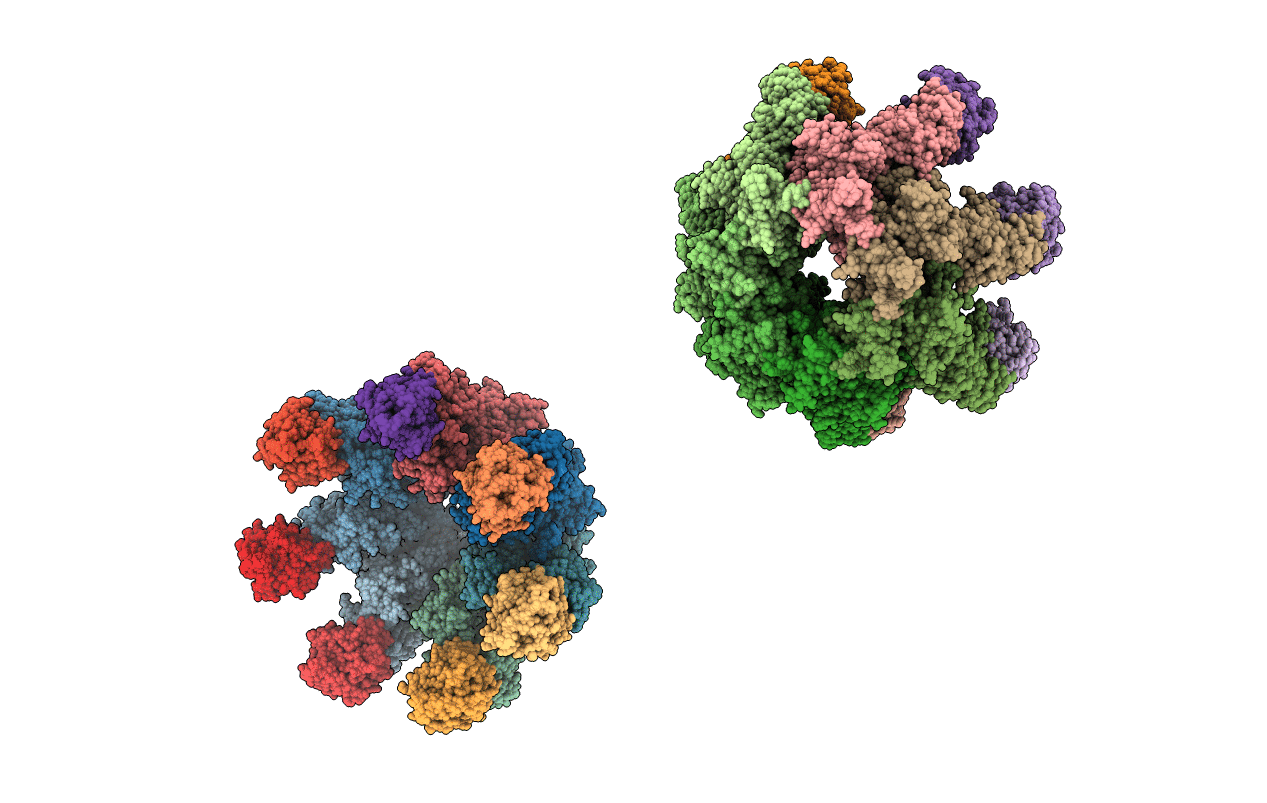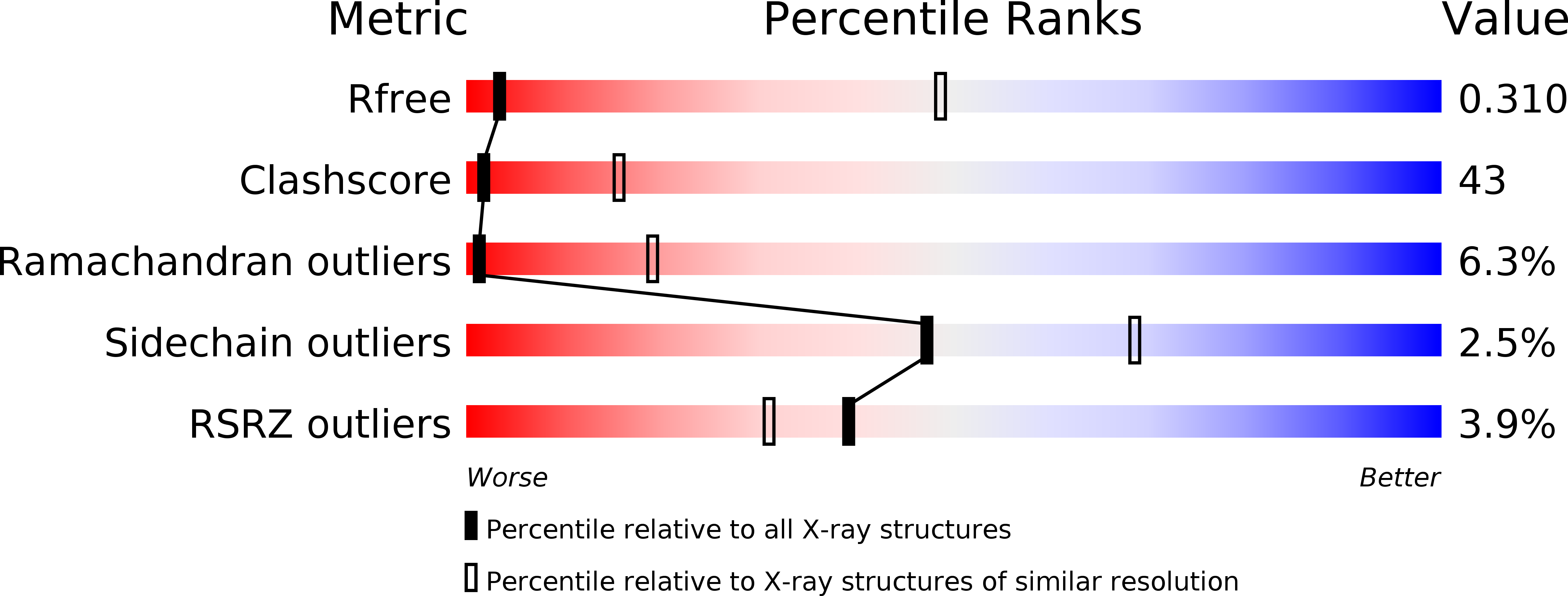
Deposition Date
2004-07-10
Release Date
2004-08-17
Last Version Date
2024-11-13
Entry Detail
PDB ID:
1TZN
Keywords:
Title:
Crystal Structure of the Anthrax Toxin Protective Antigen Heptameric Prepore bound to the VWA domain of CMG2, an anthrax toxin receptor
Biological Source:
Source Organism(s):
Bacillus anthracis str. (Taxon ID: 191218)
Homo sapiens (Taxon ID: 9606)
Homo sapiens (Taxon ID: 9606)
Expression System(s):
Method Details:
Experimental Method:
Resolution:
4.30 Å
R-Value Free:
0.33
R-Value Work:
0.32
R-Value Observed:
0.32
Space Group:
P 1


